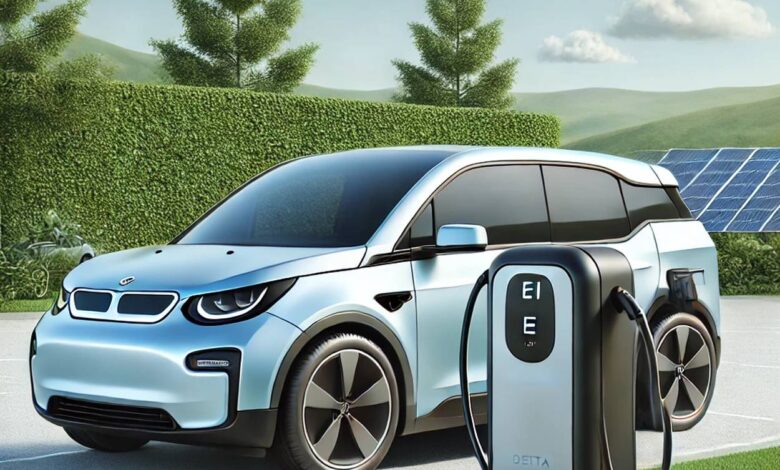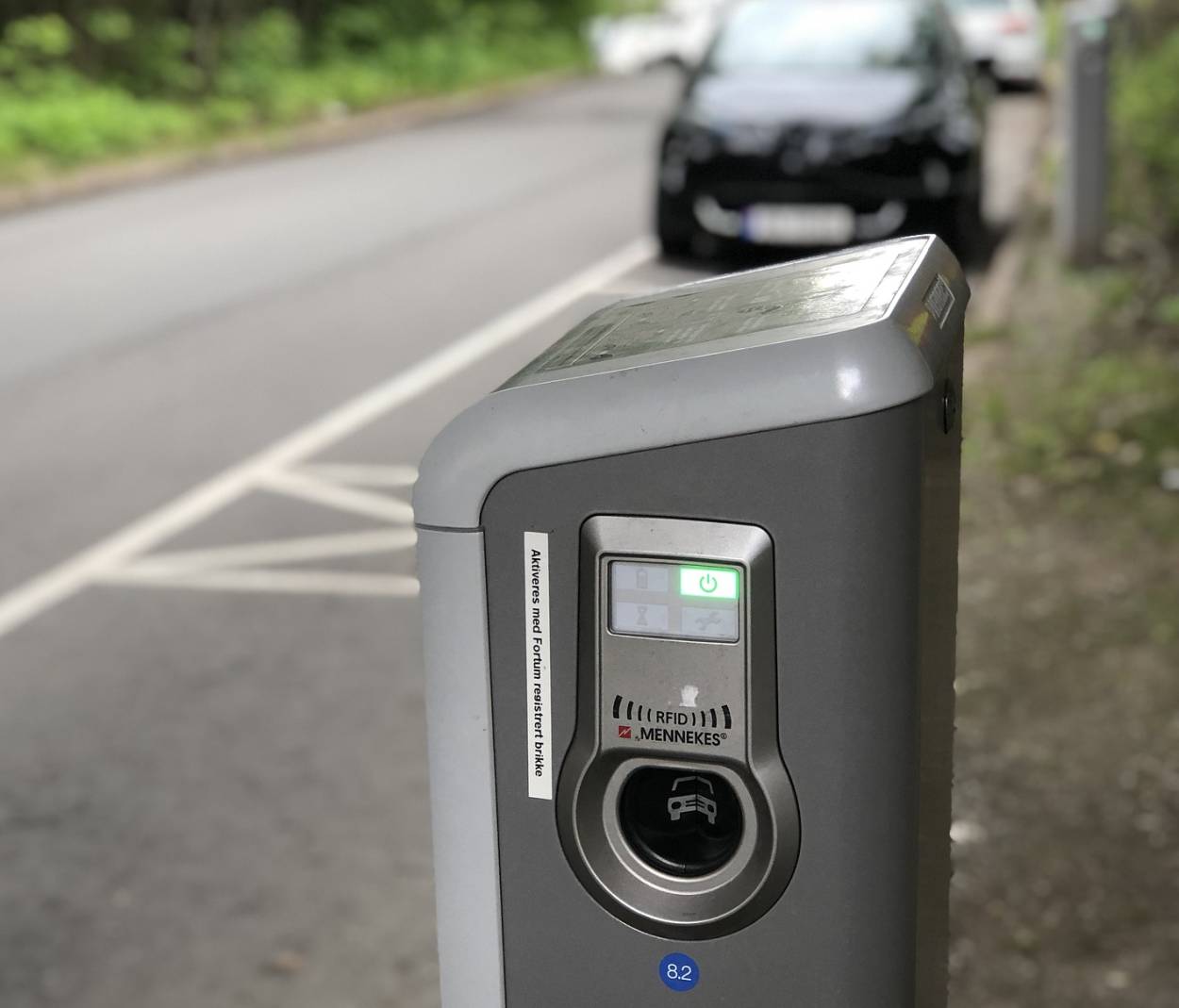Portable EV Charging Station: Revolutionizing Electric Vehicle Convenience

The future of electric vehicle (EV) charging is here, and it’s portable. Portable EV charging stations are transforming the way drivers access power for their vehicles, offering flexibility and convenience in situations where traditional charging infrastructure falls short. With the growing adoption of electric vehicles, understanding these portable solutions is vital for ensuring uninterrupted journeys.
What Is a Portable EV Charging Station?
A portable EV charging station is a compact, mobile device designed to recharge electric vehicles without being tethered to a fixed charging infrastructure. These chargers often feature plug-and-play functionality, allowing users to connect to various power sources, such as standard household outlets or dedicated EV charging outlets.
Key Features of Portable EV Charging Stations
- Compact and Lightweight: Designed for easy transport in your vehicle.
- Multiple Power Options: Compatible with Level 1 (120V) and Level 2 (240V) outlets.
- Smart Technology: Many models include features like Bluetooth or Wi-Fi for remote monitoring.
- Safety Mechanisms: Equipped with protection against overcharging, overheating, and short circuits.
Why Portable EV Charging Stations Are Game-Changers
The importance of portable EV charging stations cannot be overstated. With the EV market booming, having a mobile solution for charging ensures that drivers are no longer limited by the availability of fixed charging points.
Benefits of Using a Portable EV Charging Station
- Emergency Power Supply: Never worry about being stranded with a low battery.
- Travel Convenience: Charge your EV during road trips or while camping.
- Cost-Effective: Avoid the expense of installing multiple fixed charging units.
- Flexibility: Adaptable to different vehicle models and power source types.
How to Choose the Best Portable EV Charging Station
When selecting a portable EV charger, it’s essential to consider your specific needs, such as your vehicle’s charging requirements, typical travel distances, and the availability of power sources.
Factors to Consider
- Power Output: Ensure compatibility with your EV’s battery capacity.
- Cable Length: Opt for a charger with an adequate cable length for maximum flexibility.
- Portability: Look for lightweight, compact designs.
- Durability: Check for weather-resistant materials and robust construction.
Top Portable EV Charging Stations on the Market
Several manufacturers are leading the charge in this space, offering innovative and reliable portable charging solutions:
Tesla Mobile Connector
- Ideal for Tesla owners.
- Supports Level 1 and Level 2 charging.
- Comes with multiple adapters for different power sources.
JuiceBox Portable Charger
- Offers smart charging features with app integration.
- Durable, weather-resistant design.
- High charging speed with adjustable power settings.
ChargePoint Home Flex
- Compatible with most EV brands.
- Flexible amperage options up to 50 amps.
- Wi-Fi-enabled for remote operation.
How Do Portable EV Charging Stations Work?
Portable EV charging stations use advanced electronics to safely convert power from a standard outlet or generator into energy suitable for charging an EV. The process involves:
- Connecting to Power: Plug the charger into a compatible power source.
- Plugging into the Vehicle: Attach the charger to your EV’s charging port.
- Monitoring the Process: Some chargers allow you to monitor progress via a smartphone app.
The Role of Portable Chargers in Expanding EV Adoption
One of the significant barriers to widespread EV adoption is “range anxiety”—the fear of running out of battery power without access to a charging station. Portable chargers directly address this concern by providing a reliable backup option.
Impact on Rural and Underserved Areas
Portable EV chargers bring a lifeline to areas with limited charging infrastructure. This accessibility encourages more drivers to switch to electric vehicles, knowing they won’t be stranded.
Environmental Benefits
By facilitating EV usage, portable chargers contribute to reducing greenhouse gas emissions and promoting cleaner transportation.
Charging Times for Portable EV Charging Stations
Charging time depends on the power level of the charger and the capacity of your EV’s battery:
- Level 1 Charging: Approximately 3-5 miles of range per hour.
- Level 2 Charging: Delivers 12-60 miles of range per hour, depending on the charger’s output.
Tips for Using a Portable EV Charging Station Effectively
To make the most of your portable EV charger:
- Plan Ahead: Identify power sources along your route.
- Carry Adapters: Ensure compatibility with different outlet types.
- Store Safely: Keep your charger in a secure, dry place when not in use.
- Regular Maintenance: Inspect cables and connectors for wear and tear.
Common Myths About Portable EV Charging Stations
They’re Inefficient
While portable chargers may be slower than fixed stations, they provide sufficient power for most needs.
They’re Too Expensive
Many models are cost-effective, especially when considering the savings on installation and the convenience they offer.
They Damage EV Batteries
Modern chargers include safeguards to ensure they don’t overcharge or harm your vehicle’s battery.
Portable EV charging stations are a vital addition to the electric vehicle ecosystem. They empower drivers with the freedom to charge anytime, anywhere, ensuring that range anxiety becomes a thing of the past. As technology continues to evolve, these compact devices will play an even greater role in supporting the transition to sustainable transportation.
Whether you’re an EV enthusiast or considering making the switch to electric, investing in a portable EV charging station could be the key to unlocking a more flexible and worry-free driving experience.

Are there portable chargers for EV cars?
Yes, there are portable chargers specifically designed for electric vehicles (EVs). These chargers are compact, lightweight, and can be carried in the car, allowing drivers to charge their EVs wherever a compatible power source is available. They are ideal for emergencies or situations where traditional charging infrastructure is unavailable.
What types of power sources can portable EV chargers use?
Portable EV chargers typically use standard household outlets (120V or 240V) or dedicated charging sockets. Some advanced models can also connect to portable power stations, solar panels, or generators, offering greater flexibility in off-grid or remote areas.
Can I charge my EV with a portable power station?
Yes, it is possible to charge an EV using a portable power station, provided the power station has sufficient capacity and is equipped with a compatible outlet. However, the charging speed is typically slower than that of conventional charging stations, and the power station must have enough stored energy to make a noticeable difference in the EV’s battery level.
Is wireless charging possible for EV?
Wireless charging for EVs is possible through inductive charging technology, where electricity is transferred from a charging pad on the ground to a receiver on the vehicle without physical connections. While this technology exists, it is still in its early stages of adoption and is not as widely available as traditional charging options.
Can EV be charged with a portable generator?
Yes, EVs can be charged using a portable generator, provided the generator is capable of delivering the required voltage and amperage. This is especially useful in emergency situations or off-grid locations, but it is crucial to ensure that the generator is compatible with EV charging requirements and used safely.
What size generator can charge an EV?
The size of the generator needed to charge an EV depends on the vehicle’s charging specifications. Generally, a generator with a power output of at least 5-7 kW is sufficient for Level 1 or Level 2 charging. Larger generators are required for faster charging or higher-capacity vehicles.
Why can’t electric cars use a generator to charge themselves?
Electric cars cannot use a generator to charge themselves because it would violate the principle of conservation of energy. The energy produced by the generator would not be sufficient to sustain the car’s motion and simultaneously recharge the battery, as energy losses occur in both generation and usage.
Can an EV be charged while driving?
Currently, EVs cannot be charged while driving due to limitations in energy transfer technology and safety concerns. Future advancements, such as dynamic wireless charging embedded in roadways, may enable this capability, but it is not yet widely available.
Why don’t electric cars have alternators?
Electric cars do not have alternators because alternators are designed to convert mechanical energy from internal combustion engines into electricity. EVs rely on their batteries and regenerative braking systems to manage energy, making alternators unnecessary.
Why do electric cars not charge while driving?
Electric cars do not charge while driving because their energy recovery systems, like regenerative braking, are designed only to capture excess energy during deceleration, not to create energy actively during motion. Adding self-charging systems would introduce inefficiencies and reduce overall performance.
Are portable EV charging stations suitable for all electric vehicles?
Most portable EV charging stations are compatible with a wide range of electric vehicles, as they use standardized connectors such as Type 1 (J1772) or Type 2 (Mennekes). However, it’s essential to check compatibility with your specific EV model before purchase.
How much do portable EV chargers cost?
The cost of portable EV chargers varies depending on their power capacity, features, and brand. Basic models for Level 1 charging can start at around $200, while more advanced Level 2 portable chargers can cost anywhere from $400 to $1,500 or more.
Do portable chargers work in extreme weather?
Many portable EV chargers are designed to withstand extreme weather conditions, including rain, snow, and high temperatures, as they are built with durable, weather-resistant materials. It is important to confirm the charger’s weatherproof rating before use in harsh environments.
Can I use a portable EV charger daily?
Yes, portable EV chargers can be used daily, but they are generally slower than fixed charging stations and may not be as convenient for regular use. Frequent use of portable chargers is more suitable for occasional needs or emergencies.
Are portable EV charging stations safe to use?
Portable EV charging stations are safe to use when operated correctly and in compliance with manufacturer guidelines. They include safety features such as overcurrent protection and temperature control, but users should always ensure proper grounding and avoid using damaged cables or connectors.




